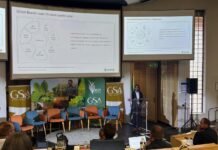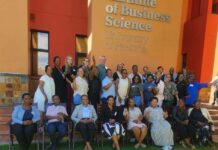Qatar Fund for Development (QFFD) and the Bill & Melinda Gates Foundation announced today, at the 2022 Doha Forum, a new strategic partnership called Nanmo, or “growing together” in Arabic. Nanmo will invest in climate-adaptive agricultural tools and technologies to build resilient food systems and markets that provide nutrition, income, and economic opportunities to small-scale producers and their communities across the African continent.
QFFD and the Gates Foundation jointly pledged up to US$200 million toward agriculture, climate resilience, and economic development projects to support smallholder farmers on drylands on the African continent. These farmers are bearing the brunt of the effects of climate change and this partnership will aim to strengthen economies in sub-Saharan Africa in four key areas:
- Equity as a primary driver of inclusive growth
- Enterprise as a means of job creation and poverty alleviation
- Agriculture as a primary source of food, jobs, and income
- Access to technologies, financial tools, and emerging best practices as a driver of productivity, nutrition, and climate adaptation
The partnership will also seek to ensure that women small-scale producers can positively contribute to, and benefit from, decisions about how their communities grow food and create jobs.
“Hundreds of millions of smallholder farmers, especially in sub-Saharan Africa, are already seeing their livelihoods threatened by higher temperatures and changing weather patterns,” said Bill Gates. “We’re building on our longstanding collaboration with QFFD to help these farmers adapt. Together, we can prevent millions of people from falling into poverty and hunger due to climate change and increase agricultural yields to jumpstart equitable economic growth where it’s most needed.”
The strategic partnership was announced by Bill Gates and Mr. Khalifa Al-Kuwari, Director General of QFFD, in the presence of Gates Foundation CEO Mark Suzman during a panel at the Doha Forum. It will support climate-adaptive tools, practices, policies, and markets as sustainable drivers of resilient food systems that provide nutrition, income, and economic opportunities to small-scale producers and their communities. It will also include systems-level research and country-level implementation to adapt to local environments.
One of the first projects funded by Nanmo will focus on improving the livelihoods of low-income women farmers in a number of African countries, working with the World Poultry Foundation to provide them with improved breeds of chicken for egg and meat production.
Mr. Khalifa Al-Kuwari said, “We are thrilled to be announcing a new initiative in collaboration with our strategic partner, the Bill & Melinda Gates Foundation, titled Nanmo, which aims at ensuring that sustainable development goals are met everywhere.” He added, “We have high hope that these valuable partnerships will expand our efforts to improve the lives of vulnerable communities, ensuring their economic security against the backdrop of this ever-evolving planet.”
The partnership will also fund projects with a clear path to achieving impact across multiple United Nations Sustainable Development Goals (SDGs), including poverty alleviation, agricultural transformation, nutrition, and youth and women’s and youth economic empowerment. Investments like these are especially important at a time when conflict in one part of the world can threaten food security across the globe.
“A thriving agriculture sector generates economic growth, but that growth doesn’t automatically benefit everyone equally,” said Melinda French Gates, co-chair of the Gates Foundation. “Nanmo isn’t just about protecting agriculture against climate change. It’s also about making sure that smallholder farmers, including millions of women, can lift themselves out of poverty and invest in a better future for their families and their communities.”
The Gates Foundation has spent over US$5 billion since 2009 on advancing agricultural development to support the needs of smallholder farmers in sub-Saharan Africa and South Asia. Stronger food systems for smallholder farmers are urgently needed to avert more serious hunger crises in dryland regions. This will help boost economies and improve the ability of farmers to respond and adapt to climate change.








